Neurodegenerative Disorder Treatment in Portland, Oregon
Comprehensive Care for Neurodegenerative Disorders
Integrative Therapies to Slow Progression, Restore Function, and Support Brain Health
Neurodegenerative disorders—such as Alzheimer’s disease, Parkinson’s disease, Multiple Sclerosis (MS), and Amyotrophic Lateral Sclerosis (ALS)—are progressive conditions characterized by the gradual loss of neurons and neurological function. These disorders affect the brain, spinal cord, and nervous system, leading to cognitive decline, motor impairments, and systemic dysfunction that can significantly impact quality of life.
These conditions are complex and multifactorial, often influenced by genetic predispositions, toxin exposure, chronic infections, neuroinflammation, and mitochondrial dysfunction. At Restorative Health Clinic in Portland, OR, we take a root-cause, science-based approach to care—combining advanced diagnostics with integrative therapies. Our treatment protocols are informed by the pioneering work of Dr. Dale Bredesen (ReCODE) and Dr. Dayan Goodenowe(Plasmalogen research), targeting the underlying mechanisms of neurodegeneration while supporting neuronal repair, immune balance, and long-term brain health.
Common Neurodegenerative Conditions We Treat:
• Alzheimer’s Disease – Cognitive decline, memory loss, and personality changes linked to abnormal protein buildup in the brain.
• Parkinson’s Disease – Degeneration of dopamine-producing neurons causing tremors, rigidity, and slowed movement.
• Multiple Sclerosis (MS) – An autoimmune condition resulting in demyelination and diverse neurological symptoms.
• Amyotrophic Lateral Sclerosis (ALS) – Progressive loss of motor neurons leading to muscle weakness, speech difficulty, and impaired movement.
Symptoms of Neurodegenerative Disorders
Symptoms vary by condition but often progress over time and overlap across diagnoses:
-
Cognitive decline: memory loss, confusion, poor decision-making
-
Motor symptoms: tremors, stiffness, balance issues
-
Neurological issues: numbness, tingling, speech or vision problems
-
Behavioral changes: depression, anxiety, personality shifts
-
Chronic fatigue and loss of stamina
Root Causes and Risk Factors
We take a root-cause approach to understand what’s driving neurodegeneration
Contributing Factors Include:
-
Genetic predisposition (e.g., ApoE4, SNCA mutations)
-
Environmental toxin exposure – heavy metals, pesticides, air pollution
-
Chronic inflammation – systemic or neuroinflammatory markers
-
Oxidative stress – free radical damage to neurons
-
Nutrient deficiencies – B vitamins, omega-3s, antioxidants
-
Mitochondrial dysfunction – impaired cellular energy production
-
Persistent infections – viral or bacterial pathogens (e.g., herpes, Lyme)
Advanced Diagnostic Testing
We use comprehensive diagnostic tools to assess toxic load and metabolic function
We use cutting-edge tools to detect early disease indicators and tailor personalized treatment:
-
Genetic Testing – ApoE, detox pathways, methylation SNPs
-
Inflammatory and Immune Markers – CRP, cytokines, autoimmunity panels
-
Heavy Metal and Environmental Toxin Testing – Mercury, lead, glyphosate
-
Nutritional and Mitochondrial Function Testing – Plasma nutrients, organic acids, ATP production markers
Integrative Neurodegenerative Treatment Options
Our goal is to stabilize, slow progression, and restore function using proven and emerging therapies.
-
1. Targeted Nutritional and Detoxification Support
-
Replenish depleted nutrients: B-complex, magnesium, omega-3s
-
Detox protocols: chelation, binders, and glutathione for toxin elimination
-
IV Therapy: High-dose vitamins, phosphatidylcholine, and antioxidants
2. Immune & Inflammation Modulation
-
Peptide Therapy: Enhance neuroprotection and immune regulation
-
Herbal Support: Anti-inflammatory, antiviral, and neuroprotective botanicals
-
Anti-Inflammatory Protocols: Dietary and supplemental strategies
3. Cellular and Mitochondrial Restoration
-
IV Cell Membrane Stabilization: Phosphatidylcholine and nutrients to repair neurons
-
Mitochondrial Repair Protocols: Support ATP production and reduce oxidative damage
4. Cognitive and Neurological Rehabilitation
-
Brain Optimization Programs: Memory, focus, and cognitive resilience training
-
Neuroplasticity Exercises: Retrain and strengthen brain pathways
-
Physical & Occupational Therapy: Support motor skills and independence
5. Lifestyle Optimization
-
Anti-Inflammatory Nutrition: Whole-foods diet to support brain and immune health
-
Movement Therapy: Exercise programs tailored to mobility level
-
Stress Management: Mindfulness, adaptogens, and emotional resilience tool
-
Get a treatment plan that’s put together specifically for you
